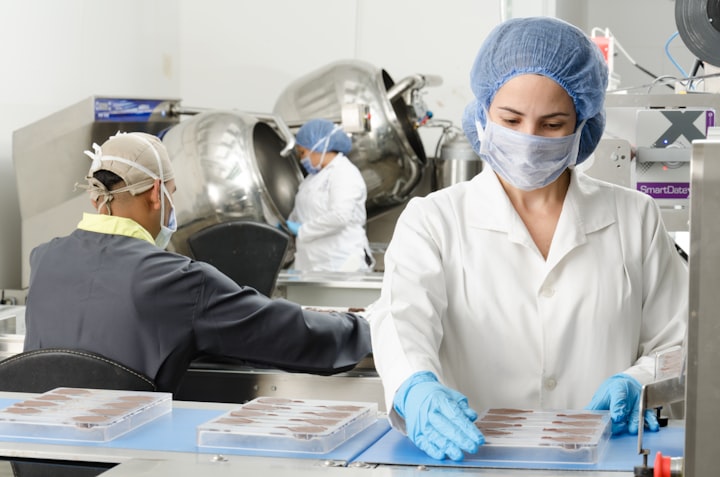Hysterectomy:
Is it the Solution to Your Pcos Symptoms?

Hysterectomy: Is it the Solution to Your Pcos Symptoms? PCOS affects up to half of women with PCOS, making it one of the most common causes of the condition.
PCOS is associated with numerous PCOS symptoms, such as weight gain, acne, hair loss, irregular periods and infertility.
As a result, many women with PCOS also have PCOS symptoms as a side effect.
PCOS is a condition in which your ovaries produce an excess amount of male hormones, leading to a variety of symptoms. For example, PCOS is associated with weight gain and acne.
PCOS is a complex condition that can cause many symptoms.
The exact cause of PCOS is unknown, but it is known to run in families and is more common in women of African descent.
The condition is traditionally treated with diet and exercise. However, a hysterectomy may be an option as a last resort to relieve PCOS symptoms.
This article explores the pros and cons of a hysterectomy and discusses the risks of a hysterectomy, including the possibility of complications, postoperative recovery and future fertility.
What is a Hysterectomy?
Hysterectomy is a surgery to remove a woman’s uterus (womb). Uterus is the organ that holds the developing baby and is usually removed during a hysterectomy.
All the other organs in the pelvic cavity (lower part of your abdomen) are left in place, including bladder, bowel and both ovaries.
Most of the time, hysterectomy is done to remove the uterus because it’s not needed for the woman to get pregnant. There are three main types of hysterectomy:
- Total Hysterectomy: Removal of the uterus and both ovaries
- Partial Hysterectomy: Removal of the cervix, part of the uterus and the myometrium (muscle surrounding the uterus)
- Radical Hysterectomy: Removal of the uterus, cervix and vagina
Risks of Hysterectomy
The risks of any surgery depend on the type of surgery, but also include the underlying health of the patient.
Hysterectomy can be done as an emergency or if the health of the patient is not a concern.
In emergency cases, the uterus or ovaries can burst if damaged.
If the ovaries or uterus isn’t damaged, there are usually no long-term health consequences of a hysterectomy.
There are some short-term side effects that may not occur in every surgery.
The most common side effect is incisional pain. Other side effects include:
- Urinary tract problems: Urinary stress incontinence and urinary retention
- Sexual dysfunction: Difficulty reaching orgasm and decreased libido
- Reduced fertility: Difficulty getting pregnant, decreased number of pregnancies in future and decreased chances of live birth - Infection: Wound infection and surgical site infection - Psychological effects:
Depression, anxiety, fear and mood changes
- Death: Serious complications that can happen during surgery or other underlying health issues that cause death
Benefits of Hysterectomy

If your doctor recommends a hysterectomy, the benefits can include: - Improvement in PCOS symptoms:
If you have severe acne, difficulty reaching orgasm or if you have difficulty getting pregnant, a hysterectomy can help you feel better.
A hysterectomy can also improve your physical appearance, as you won’t have to worry about having polycystic ovary syndrome (PCOS) symptoms, like excess weight gain and acne.
- Decreased risk of cancer: A hysterectomy can decrease the risk of certain types of cancers that may occur in the uterus or cervix.
- Decreased risk of endometriosis: You are at a lower risk of developing endometriosis if you have a hysterectomy.
- Decreased risk of ovarian cysts: A hysterectomy can decrease the risk of certain types of ovarian cysts.
Pros and Cons of Hysterectomy for PCOS
If you have severe PCOS symptoms, your doctor may recommend a hysterectomy.
A hysterectomy can relieve your PCOS symptoms, but it should be your last option.
After a hysterectomy, ovaries may still produce excess amounts of testosterone, which can cause further PCOS symptoms such as excess weight gain.
Before a hysterectomy for PCOS symptoms, your doctor will likely perform blood tests and/or an ultrasound to determine if you are a good candidate for a hysterectomy.
- If you have severe PCOS symptoms like excess weight gain and acne, a hysterectomy can relieve your symptoms.
- A hysterectomy can decrease your risk of ovarian cancer.
- A hysterectomy can decrease your risk of endometriosis.
- A hysterectomy can decrease your risk of developing ovarian cysts.
- A hysterectomy can prevent you from having children if you are past menopause.
Should You Have a Hysterectomy for PCOS?
If you have severe PCOS symptoms, a hysterectomy may be the best option.
A hysterectomy can relieve your PCOS symptoms and improve your physical appearance.
However, a hysterectomy shouldn’t be your only treatment option for PCOS.
With a hysterectomy, your ovaries (which produce testosterone) may still produce excess amounts of testosterone, which can cause further PCOS symptoms such as excess weight gain.
A hysterectomy is usually recommended for people with severe PCOS symptoms.
However, a hysterectomy shouldn’t be your only treatment option for PCOS.
With a hysterectomy, your ovaries (which produce testosterone) may still produce excess amounts of testosterone, which can cause further PCOS symptoms such as excess weight gain.
Should Your Doctor Perform a Hysterectomy for PCOS Symptoms?
If you have severe PCOS symptoms, you should speak to your doctor about a hysterectomy.
A hysterectomy may be your best option for treating your PCOS symptoms.
However, before you have a hysterectomy, your doctor should determine if this is the right treatment option for you.
Your doctor should perform a thorough examination, blood tests and/or an ultrasound to determine if you are a good candidate for a hysterectomy.
A hysterectomy should only be performed if it is the best option for you.
If a hysterectomy is recommended, your doctor should determine if you are a good candidate for the surgery by performing a thorough examination, blood tests and/or an ultrasound.
Your doctor may also want to confirm that you have a hysterectomy if you have one of the following symptoms:
- Severe PCOS symptoms - Excess weight gain - Difficulty getting pregnant - Difficulty reaching orgasm
"Have You Ever Wonder Why You Keep Struggling To Survive? " Isn't It Time For You To Know Your Future And Control Your Destiny?
About the Creator
Samson Williams
Hey there, I'm Samson Williams, and I'm all about helping folks like you tap into your full potential through the magic of astrology-based transformation. Ever since I can remember, I've been fascinated by the connections between






Comments
There are no comments for this story
Be the first to respond and start the conversation.